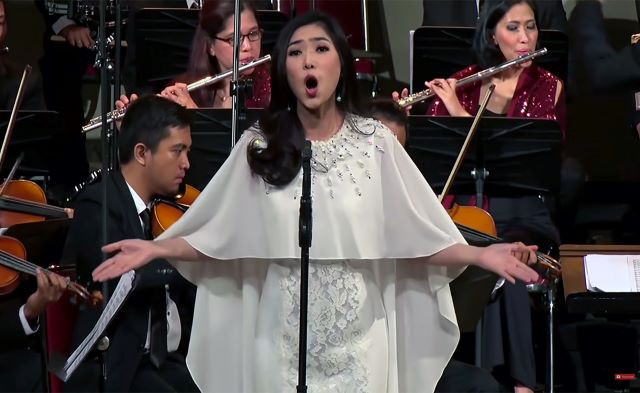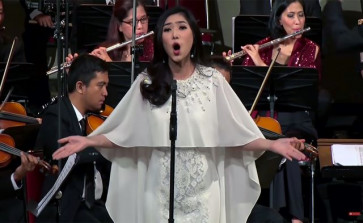Popular Reads
Top Results
Can't find what you're looking for?
View all search resultsPopular Reads
Top Results
Can't find what you're looking for?
View all search resultsIt's time to decolonize ethnomusicology
A universal art product that no longer needs to be labeled Western or Eastern, there is no need to compare the modern and exotic.
Change text size
Gift Premium Articles
to Anyone
T
he following questions are important: Which one is superior? Western music or Eastern music? Should there be war between the two camps? And is there still a demarcation separating Western from Eastern music?
Such questions are relevant because in the modern era we live in this line of demarcation should have disappeared. A teenager in Amsterdam can now easily hear Balinese Gong Kebyar music or similar experimental music played by Senyawa through Spotify or YouTube, supported by cloud computing technology.
Cloud technology can also enable office workers aged 30 and over in Jakarta to easily access the full discography of The Beatles or Led Zeppelin on their newest devices. Folk, polka or Latin music is also accessible to Indonesians as their daily soundtrack.
That is in terms of ease of access to music. The demarcation line between East and West is already disappearing in terms of developing or composing music. There is no West or East anymore. It means that music is music. A universal art product that no longer needs to be labeled Western or Eastern, there is no need to compare modern and exotic.
The disappearance of this line of demarcation means that musicians in the United States can easily learn and compose Javanese traditional music, just as American musician Lou Harrison did when he released an album titled Gamelan Music. Or see how another US musician, Dengue Fever, can bring Genjer-Genjer, a song that in Indonesia was banned by the New Order. Most recently, one of the most famous modern-era rock music masters from Weezer, Rivers Cuomo, rearranged the song Anak Sekolah (school children) popularized by the late Indonesian maestro Chrisye.
On the other hand, many Indonesian musicians can learn music from outside Indonesia and then apply it in their musical arrangements. For example, singer-composer Isyana Sarasvati creates operatic and gothic, very European music in her album LEXICON. Isyana even mixed opera with death metal when she collaborated with Deadsquad on the song Il Sogno. Or see how the band from Yogyakarta, The Cloves and the Tobacco, created Celtic punk music, originally developed in Ireland and Wales and Scotland in the United Kingdom. Still from the same town, Auretté and The Polska Seeking Carnival composed folk music, a la waltz, and polka from mainland Europe.
The merging of the world into one unit also makes it easier for musicians from various parts of the world to collaborate to create music. DJ Kasimyn from the Indonesian electronic unit Gabber Modus Operandi can contribute the gabber's signature beats they play to Björk's latest album Fossora. One of Indonesia's famous musicians, Dewa Budjana, collaborated with foreign musicians Jordan Rudes, Marco Minnemann, Mohini Dey and the famous sinden (female singer in Javanese puppet show) Soimah Pancawati on the song Hyang Giri. Indonesian-born soloist Sandrayati collaborated with Icelandic multi-instrumentalist musician Ólafur Arnalds on the song Vast.



















